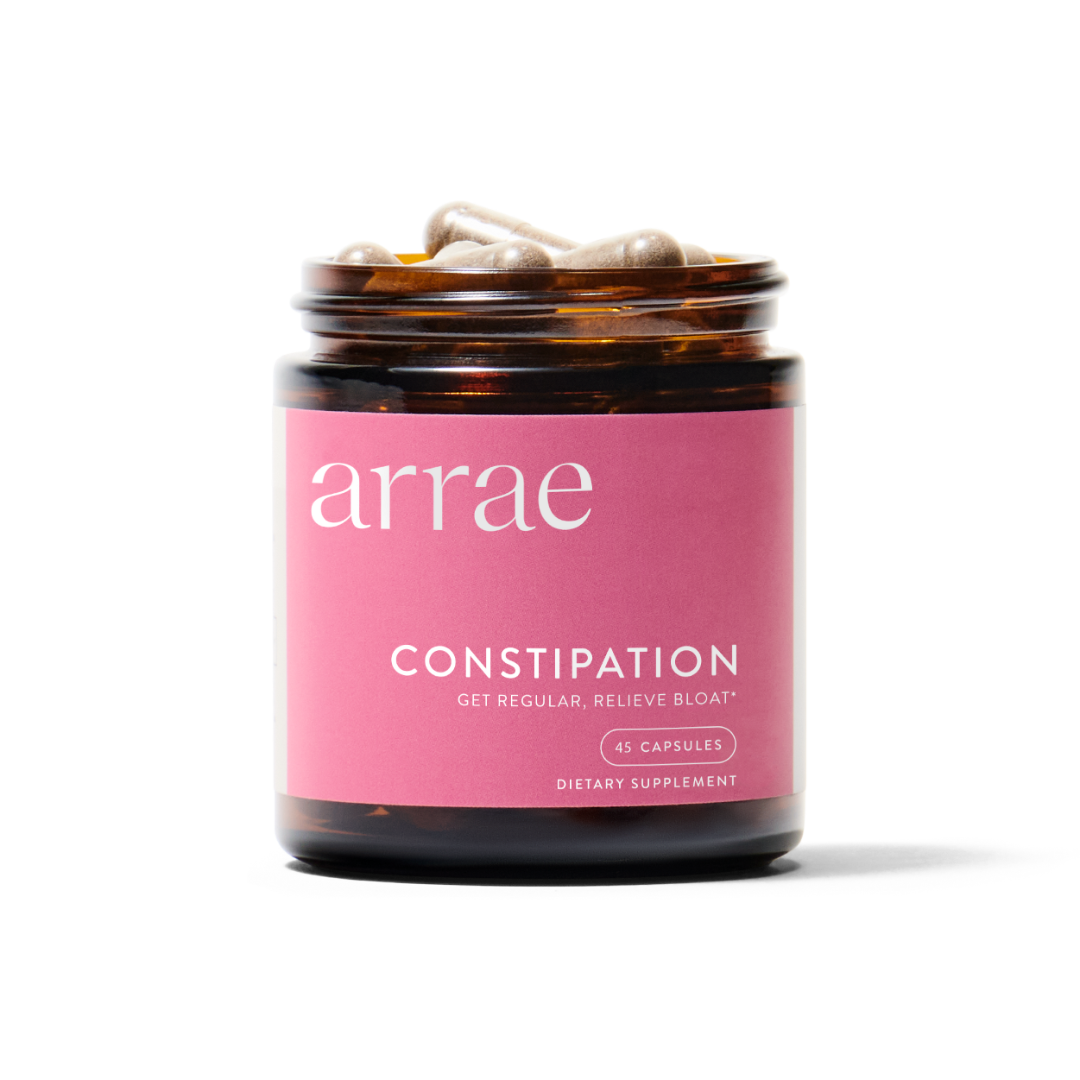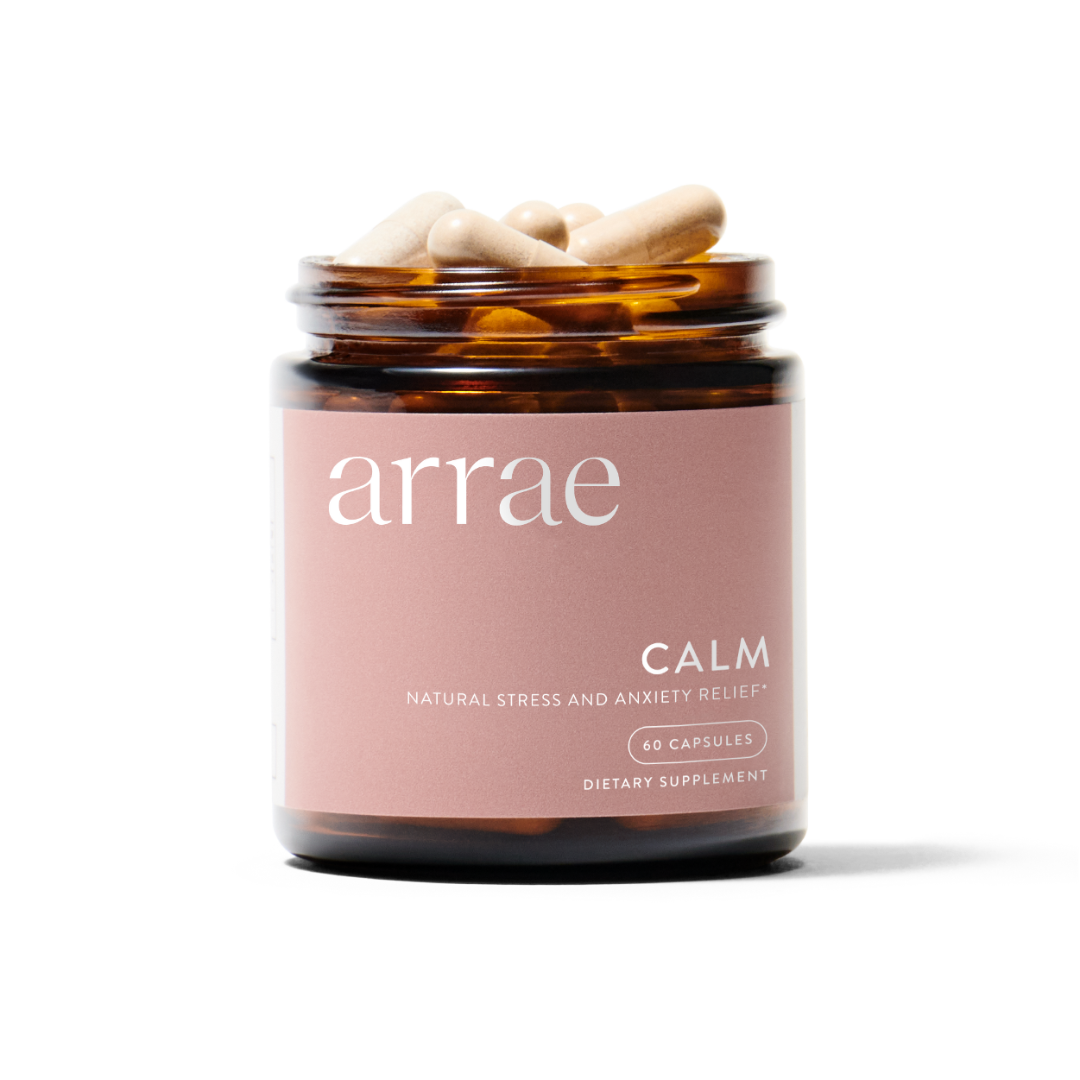It’s nearly impossible to imagine a life without stress, right? Whether we’re aiming to meet a work deadline, studying for exams, or even on vacation, stress follows us everywhere. Many of us are used to these feelings, and are especially prone to compartmentalizing our stress by blaming life overwhelm in general, others, or our ongoing anxiety for the way we feel.
By now, we’re well versed on the impact of stress on our digestion, concentration, and mood. But, chronic stress does much more than impact us on a macro level; instead, living with stress for prolonged periods of time can actually change the way we behave, alter our hormones, and increase or decrease our appetite; these changes happen on a micro level, but can have a significant impact on the ways we show up for ourselves each day.
No matter how much meditation we do, how long we spend journaling, or how many walks we go on, one thing always holds true: we would not be able to do anything without properly fueling our bodies first. Some days, we’re in the mood to make a new Pinterest recipe, and other days, eating seems like just crossing an item off our to-do list. Stress can make us feel all the feels when it comes to eating and our appetite…are you wondering how we can remedy this? Keep reading to learn how stress impacts our appetite, why this connection isn’t the same for everyone, and what to do whether stress makes you an emotional eater who mindlessly munches or makes your appetite disappear.
How Does Stress Impact Our Appetite?
Stress exists in two ways: acute and chronic. Acute stress is a short-lasting response to a sudden and often surprising event, while chronic stress may feel less intense but last for a longer period of time. It’s imperative to make the distinction between these two states as they will often not have the same effect on our bodies and our eating behaviors.
Appetite control is complex, with various hormones working together to make us feel hungry or full. When we’re stressed, the relationship between our brain and our hormones is even more complicated. Appetite is generally controlled by ghrelin, the hunger hormone, and leptin, the fullness hormone. Interestingly, these hormones increase and decrease depending on the type of stress we’re under and can differ vastly as a response to stress.
When we’re acutely stressed, ghrelin, specifically, is ‘turned off’; aka, we don’t feel as hungry. But, when we’re under chronic stress, this hormone skyrockets, making us crave sugary and salty foods that often aren’t as nutritious. Leptin, conversely, decreases during and following acute stress with women displaying more severe fluctuations. So, this could explain the cliché of stress making us feel ‘bottomless’, giving us a reason for craving pizza and ice cream.
Appetite control is complicated, but most of us know when we’re straying from our norm. Like most things in the health and wellness world, every individual is different; two people experiencing the same type of stress may have two completely different reactions to food.
Emotional Eating and ‘Comfort Foods’
Emotional eating is defined as eating as a way to suppress or distract from negative emotions, including stress, sadness, anxiety, and boredom. In other words, food becomes a coping mechanism for some, enabling negative feelings to fade as the indulgence in snacks takes over. Research shows that cortisol (remember, the stress hormone from this blog post) is released when we’re under stress; the spike in cortisol leads to a spike in our appetite, causing us to crave ‘comfort foods’, aka our favorite warm pasta dish or the gelato we can’t stop thinking about.
Foods that are high in fat and/or sugar are known to dampen the body’s stress response, which is why so many of us go for these less nutrient dense foods during times of stress. As a result, it may be difficult to lessen these cravings; it’s our body’s physiological mechanisms that predispose us to emotional eating. Additionally, comfort foods activate the reward system in the brain, giving us a spike of dopamine, and making us want even more foods to continue this sugar high.
Scientists have recently proposed the Reward Based Stress Eating model to help explain why it’s so difficult to go for veggies and salads when we’re stressed. It emphasizes the role of cortisol on the brain’s reward system, as well as including various other compounds released in response to both types of stress. For example, both stress and appetizing foods can stimulate the release of opioids in the body. Endorphins, the ‘feel good’ hormones that are released after exercise and after eating something tasty, lower our pain levels and make us feel more relaxed. When this reward system is repeatedly activated, our body’s pleasure threshold decreases, and overeating is more likely to occur.
All of this being said, there is room for all foods in a healthy, well-balanced diet. Sometimes, fruits and vegetables aren’t what we need when we’re not feeling our best, and that’s perfectly normal! Giving ourselves the space for all foods to fit in our diet is what we, at Arrae, strive for.
Fight or Flight vs Rest and Digest
If we surveyed a group of 10 people, it’s unlikely that everyone would have the same appetite response to stress. Some would say they look to food to distract them or use food as a way to increase their mood. Others might say they ‘forget to eat’ or simply don’t feel the urge to eat. So, why is this?
Under acute stress, it’s likely that appetite will decrease. Epinephrine levels become elevated in acute stress, triggering the fight or flight response in our body. This results in a temporary decrease in appetite and/or eagerness to eat. As stress continues, and becomes chronic, cortisol levels increase, leading to an increase in appetite and a higher propensity to overeat. Evolutionarily, this spike in cortisol levels existed to help us stock up on energy to ‘fight’ whatever threat we were dealing with. But, these days, stress looks different than us trying to outrun a tiger or lion (you know, that well known metaphor), and instead looks like us cramming for an exam, making a deadline at work, or dealing with relationship struggles. These modern stressors don’t require us to stockpile calories, but the basic biological reasoning is the same; our body is working to protect us by acquiring the fuel it needs to tackle whatever may be in store.
However, this may not be true for everyone. The way stress manifests itself is different, therefore making it challenging to predict exactly what might happen when we’re stressed. Individuals with persistent stress or anxiety are more likely to have chronic elevations of hormones such as corticotropin-releasing factor (CRF) which, over a prolonged period of time, will suppress appetite. Increased cortisol levels also lead to an increased production of acid in the stomach, making us feel nauseous and creating a vicious cycle of physical symptoms that make eating much less appetizing.
How to Relieve Stress…and Get Our Appetite Back On Track
Whether we’re more likely to snack away or watch our appetite go away, eating and stress do go hand in hand. Eating too much or not eating at all are habits that will make it more difficult for the body to cope with stress. Here’s what to do, no matter if you’re feeling ravenous or put off by food.
Sit in Silence: Stress can make us feel like our brain is operating at a superhuman speed without having an ‘off’ button. Make a conscious effort to leave the situation, whether that’s physically or mentally, for a set period of time. Whether this looks like journaling, meditating, taking a hot shower, or listening to your favorite music, do something that isn’t just ruminating on the issue at hand.
Get Active: When we’re stressed, our body reacts by tensing up (you know that neck pain that only seems to exist when we’re stressed?). To counteract this, take a walk in nature, sign up for your favorite workout class, or hit the gym. Any type of movement will help release endorphins and will help to balance out appetite.
Focus on Healthy Fuel: Eating with intention is harder to do under stress, but it goes such a long way in terms of our overall health and self-confidence. Making healthy choices, like fruit-packed smoothies, comforting soups, and hearty grain bowls will make us feel so much better long term. But, like we said before, there is always room for dessert; honoring our bodies during stress gives us an added boost of happiness.
Don’t Forget Digestion: Stress makes digestion go crazy, whether we’re running to the bathroom or waiting for the urge to go. While we’re aiming to focus on healthy foods, we might require an extra Gut Boost to signal our digestive system to start before even taking the first bite.
Sleep: Getting good sleep, in quality and duration, is key in times of stress. Check out our various blog posts to learn more about sleep hygiene and form your ideal night routine to help give your brain a much-needed rest.






















 Instagram
Instagram TikTok
TikTok Youtube
Youtube Facebook
Facebook Email
Email